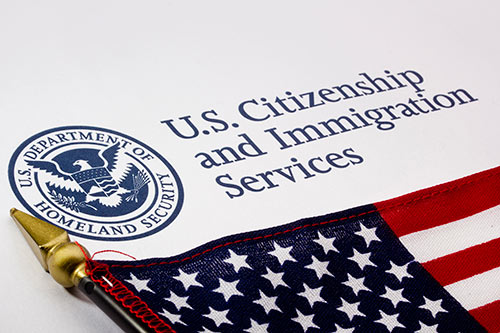If you’re applying for permanent residency or even just a visa to travel to the United States, you’ll need to pay a fee to get fingerprinted by immigration officials. This fee, which usually costs 85 dollars, allows you to gain an appointment at a set location for the biometrics process.
You might wonder why fingerprinting is required at all for immigration and travel visas, especially if you have no criminal record. Here’s why fingerprinting is so important to not only the security of the United States but also your own personal security as you gain the necessary documents to visit or reside legally in the Unites States.
NATIONAL SECURITY
The first and foremost reason why the application process for green cards and other visas is so strenuous is that the Unites States strives to ensure the safety of its citizens. Even though you don’t see yourself as a threat, there’s always the possibility that a criminal or terrorist is trying to gain legal entry.
For this reason, fingerprinting each applicant helps to secure a working database of all people who plan to spend time living, studying, or working in the country. If you have a previous criminal history that does not bar your application from being approved, that information will be linked to your fingerprints.
Fingerprinting each individual also helps to reduce the chances that somebody can enter the country on a fraudulent visa. Since every legal visa holder has fingerprints in the system, a fraudulent visa holder’s prints will not appear if they are scanned at a port of entry.
PERSONAL SAFETY
Fingerprinting help to preserve your personal safety from those might steal your passport, visa, or green card or otherwise use your identity. For example, if someone using your green card number is fingerprinted at any point, their prints will not match yours, and they will be arrested.
If someone ends up stealing your identity and using your immigration status to get ahead, the fingerprint database can also protect you from debt, accusations of criminal activity, and employment problems that would otherwise be linked to you. Since children under 14 are not fingerprinted by immigration services, you might consider getting the fingerprinting of your children done privately to help protect their identities.
MANDATORY SCREENING
Because of the above safety provisions, there is no option to wave fingerprinting and biometrics when you’re applying for immigration. Missing your appointment, refusing to pay the fee, or refusing to provide all of your fingers for recording will result in the immediate denial of your visa or permanent residency application. Be sure to take your appointment seriously.
Remember that when you have no criminal history, these records will only benefit you. If you get a job in public service, childcare, teaching, medicine, or social services, you’ll need to be fingerprinted and get a background check. Think of the country like one of these companies, except with greater need for risk management.
PRIVACY
You might be concerned about who has access to your biometric records after your submit them through immigration. Your visa application, green-card information, personal identifiers, and fingerprints are all confidential—they will not become public record.
However, your fingerprints will be available to immigration officials and border-security workers at ports of entry to the United States. Some government databases for high-level jobs will also have access to your biometrics information if there is a legal reason the information might be needed.
Unlike other fingerprinting information, however, your immigration biometrics cannot be seized or reviewed by standard law-enforcement officials unless there is due cause under the law. Even then, they will need to go through proper legal channels to be granted full access.
For more information on fingerprinting databases and how they can protect you, contact us at Poway Livescan.

